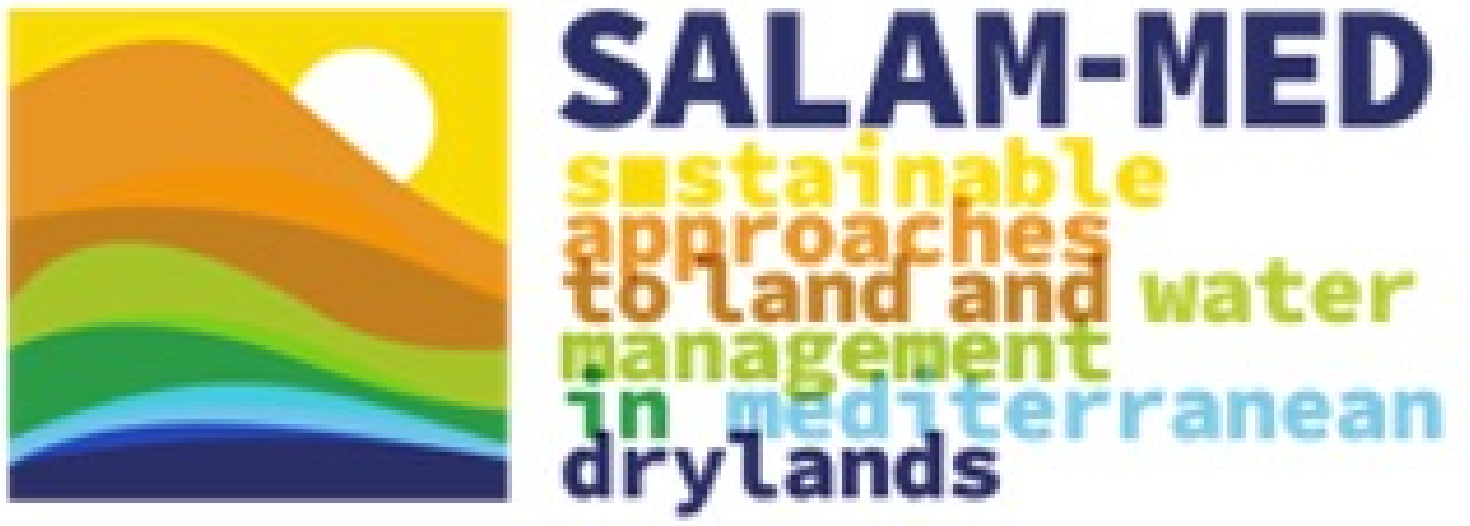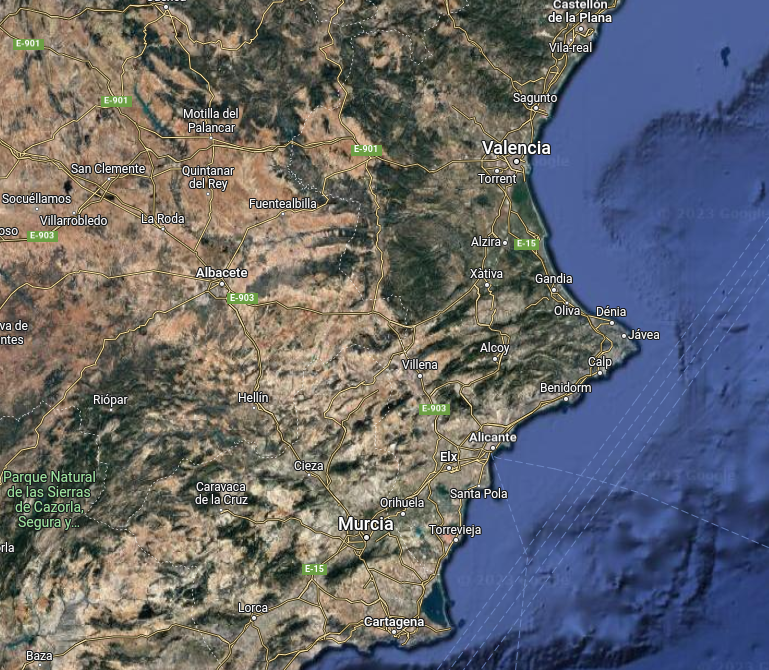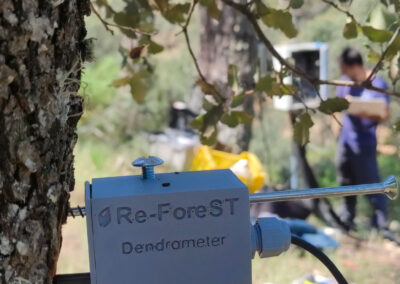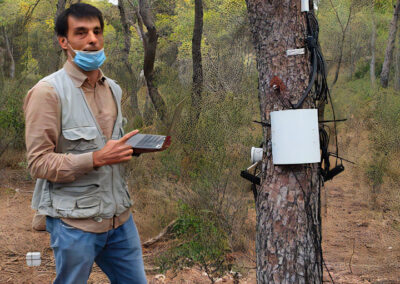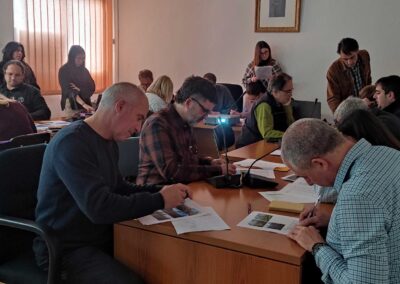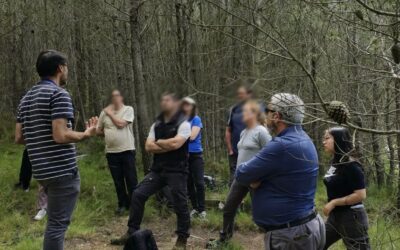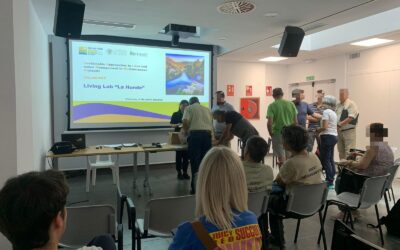Spain
The sustainable management of abandoned MED dryland forests affects the hydrological balance of watersheds providing ecosystem services and freshwater to rural and urban societies in over 50% of Southern Europe’s land. In Valence, the effectiveness of the C.A.F.E. approach will be tested to enhance sustainable forest management.
Technologies and Practical solutions developed here
Adaptive vegetation management tool (CAFE)
Leader
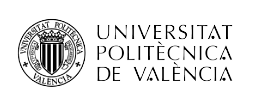
Polytechnic University of Valencia
Profile 1
Altitude: 1,080-1,100 m a.s.l.
Coordinates: 39º04′-N, 1º14′-W
Size: 0.2 ha (plot), 50 km² (Forest),
Mean annual temp: 12.8 °C
Mean annual prec: 466 mm
Mean annual ETo: 749 mm
Aridity index: 0.62
Local population: 6,000
Main land uses, crops and
animals: agro-silvopastoral,
almonds, olives, beekeeping,
hunting, sheep
Profile 2
La Calderona
Altitude: 790 m a.s.l.
Coordinates: 39°42′ N 0°27′ W
Size: 0.2 ha (plot), 112 km2
(watershed), scalable to ≈10000 km2
Mean annual temp: 15.0°C
Mean annual prec: 350 mm
Mean annual ETo: 837 mm
Aridity index: 0.42
Local population: 3,000
Main land uses, crops and animals:
agro-silvopastoral, orange orchards,
carob tree, almonds, olives, livestock
The Living Lab
The Spanish Living Lab, part of the SALAM-MED project, focuses on adaptive forest management (AFM) to enhance ecosystem services (ES) in Calderona and La Hunde forests. Recognizing forests as essential public goods, the lab engages diverse stakeholders in co-creating solutions that balance environmental preservation with economic viability.
read more close
Through workshops, stakeholders collaboratively prioritized essential ecosystem services, including biodiversity conservation, sustainable resource use, climate adaptation, and economic opportunities like sustainable tourism and job creation. Key outcomes include developing spatial maps for ecosystem services, identifying actionable forest management strategies, and creating a comprehensive management roadmap. Future steps involve establishing innovative payment schemes for ecosystem services aligned with European Union carbon farming regulations. Monitoring and evaluation have shown high stakeholder engagement and maintained enthusiasm, with participation rates averaging 83%. Efforts have successfully involved significant female representation, though engaging youth remains challenging. While the lab efficiently manages its resources, ongoing evaluations focus on practical solutions and business opportunities linked to sustainable land and ecosystem management. The collaborative approach, initially faced with stakeholder differences, ultimately fostered a cohesive, solution-oriented community. The Spanish Living Lab highlights the importance of clearly demonstrating immediate benefits of adaptive forest management to stakeholders and aligns closely with evolving European regulations. This flexible, inclusive strategy has effectively integrated diverse perspectives, positioning the lab as a model for collaborative environmental governance and sustainable rural development.
Last News from the Living Lab
This section aims to foster dialogue and exchange of information among key Living Lab stakeholders, continuously updating all participants on progress and news about activities carried out.
Calderona Living Lab – 3r Taller
El 16 de mayo de 2025 se celebró el último taller del Living Lab de la Calderona en Serra, Valencia. 🔎 ¿Qué hicimos en este tercer taller? ✔️ Utilizamos la herramienta CAFE DSS...
Hunde Living Lab – Third Workshop (Spain)
Last Friday, June 6th, we held the last workshop of the Living Lab de la Hunde in Ayora, as part of the SALAM-MED project. 🌍 What is SALAM-MED?This project is an initiative...
Stakeholders
The Living Lab is based on the collaboration of different stakeholders, each of whom brings useful skills and resources to address the area’s challenges in an integrated way. Their active participation enables the development of effective and shared solutions. This section presents the main stakeholders and their contributions to the project.
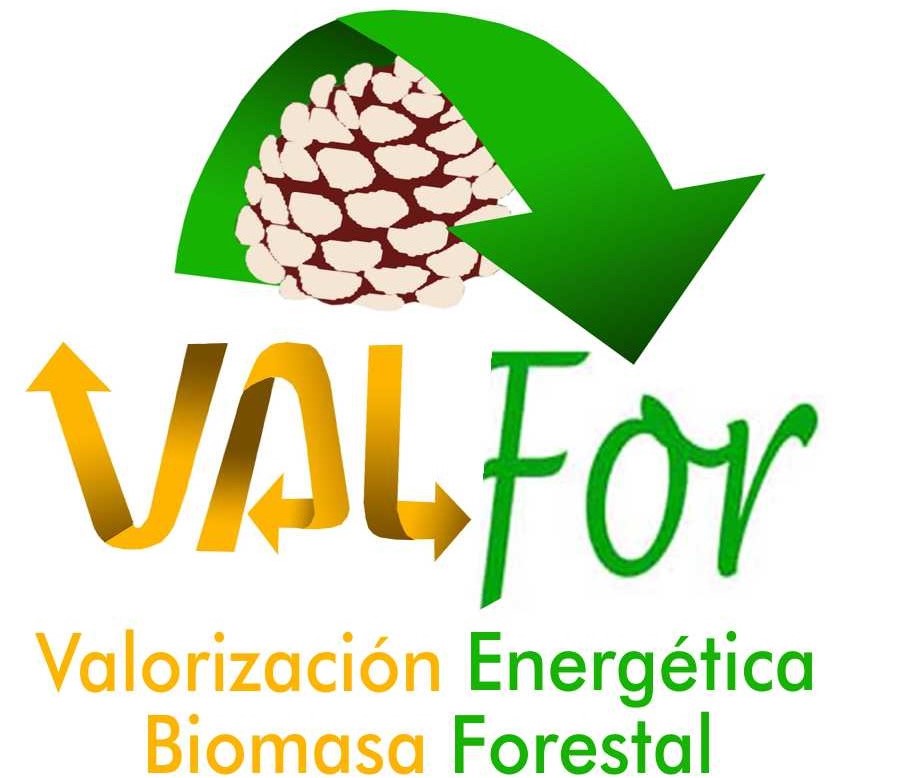
VALENCIANA FORESTAL SL
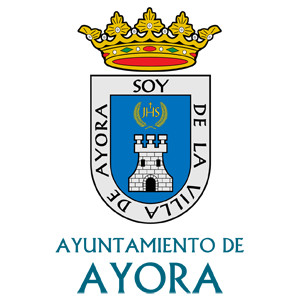
Ayuntamiento de Ayora
Siendo conscientes y concienciando en la manera de lo posible de la importancia que tiene el equilibrio entre la actividad del hombre y el desarrollo de los ecosistemas naturales; por todo ello creemos que son imprescindibles estos proyectos como SALAM-MED…
Would you like to be added among the stakeholders?
Sign up and we will add you.
Technologies and Practical solutions developed in this Living Lab
The sustainable management of abandoned MED dryland forests has impacts on the hydrological balance of watersheds providing ecosystem services and freshwater to rural and urban societies in over 50% of S-Europe’s land. Across the MED (Spain, Italy, France, Greece…), there is an urgent need to optimize adaptive forest management approaches. Many of these dryland forests are located in wildland-urban interface, where besides their impact on hydrological cycling, fire risk becomes a major issue that claims for urgent forest management.
Click on the cards below to learn more about the individual technologies tested in the living lab.
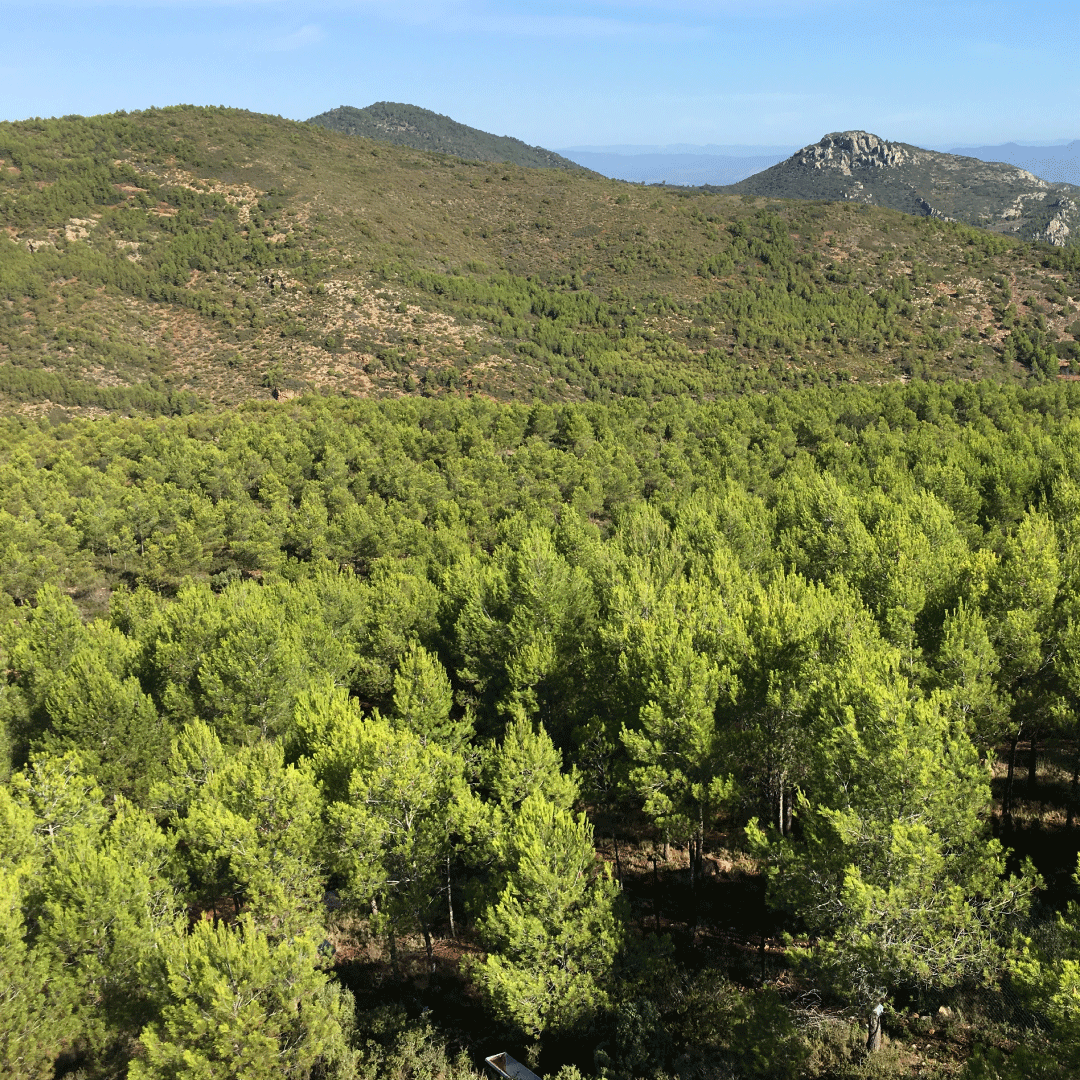
Adaptive vegetation management tool (CAFE)
Zenodo References
Stakeholders Signup

Ayuntamiento de Ayora
Siendo conscientes y concienciando en la manera de lo posible de la importancia que tiene el equilibrio entre la actividad del hombre y el desarrollo de los ecosistemas naturales; por todo ello creemos que son imprescindibles estos proyectos como SALAM-MED.
En el Ayuntamiento de Ayora y en particular en el departamento de Medio Ambiente, nos preocupamos por gestionar de manera sostenible y enfocados en el respeto al entorno natural.

VALENCIANA FORESTAL SL
presa forestal ubicada en la localidad de Moixent, aunque nuestro ámbito de trabajo se extiende a de la Comunidad Valenciana y provincias limítrofes. Empresa dedicada a todo tipo de trabajos forestales, en especial la valorización energética de los residuos forestales generados en trabajos selvícolas, llevando a cabo la extracción de la biomasa en el monte hasta la puesta en planta de valorización.
